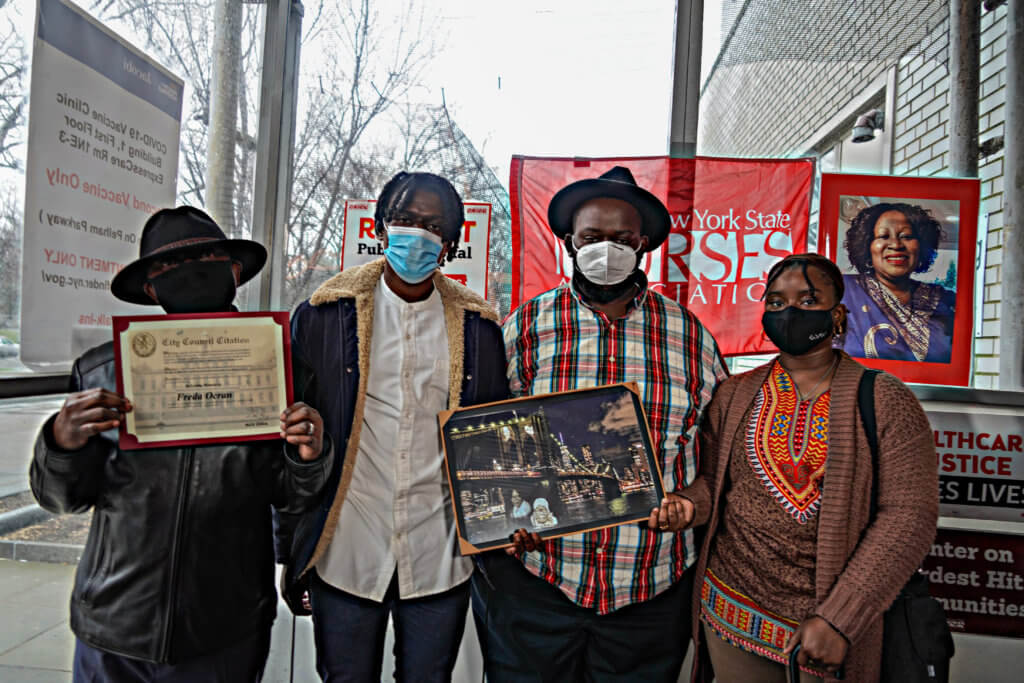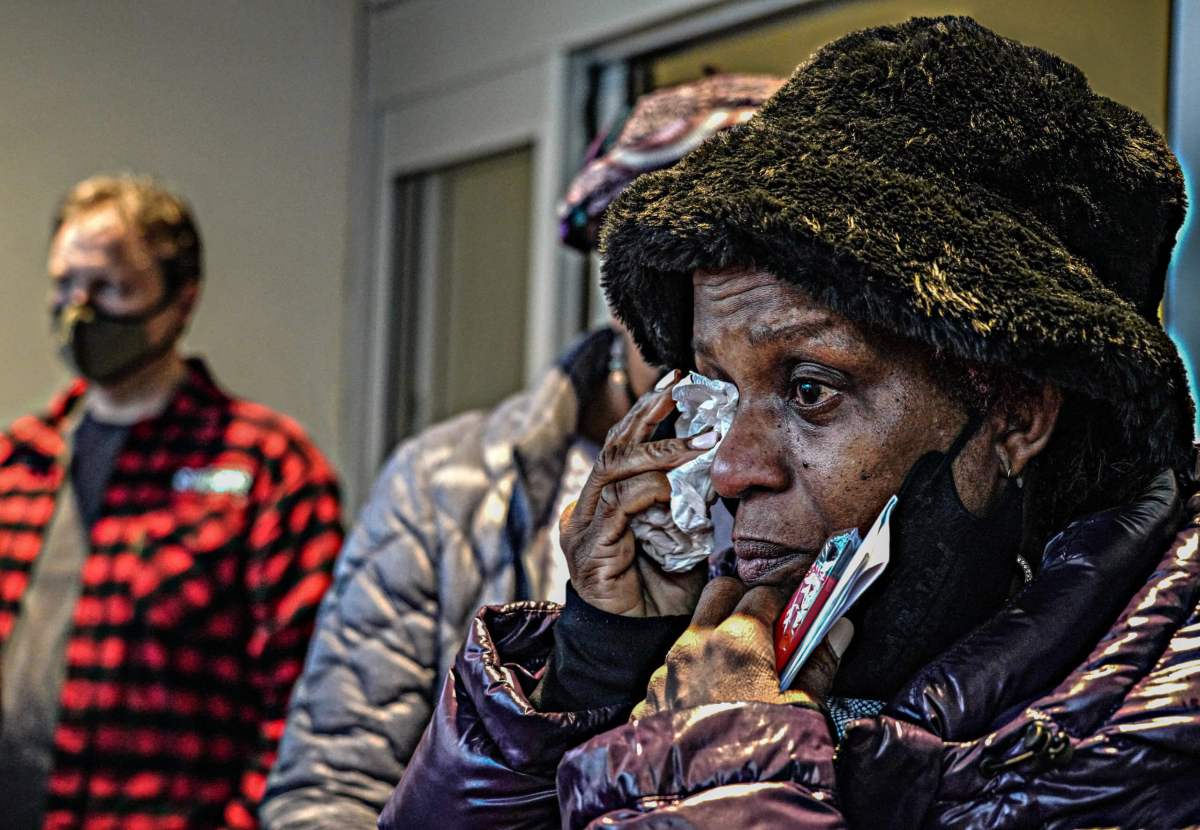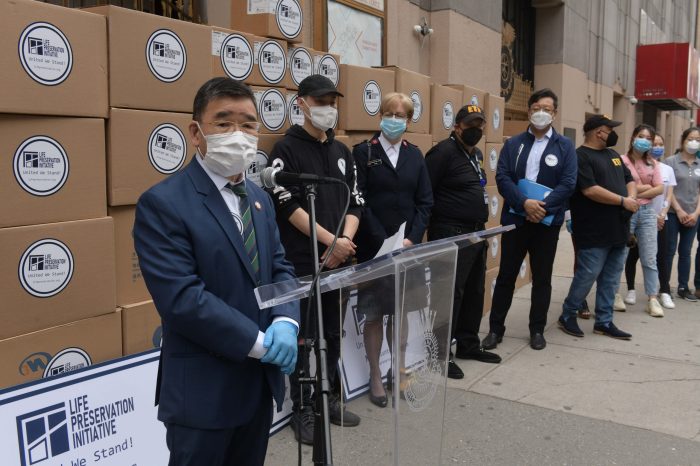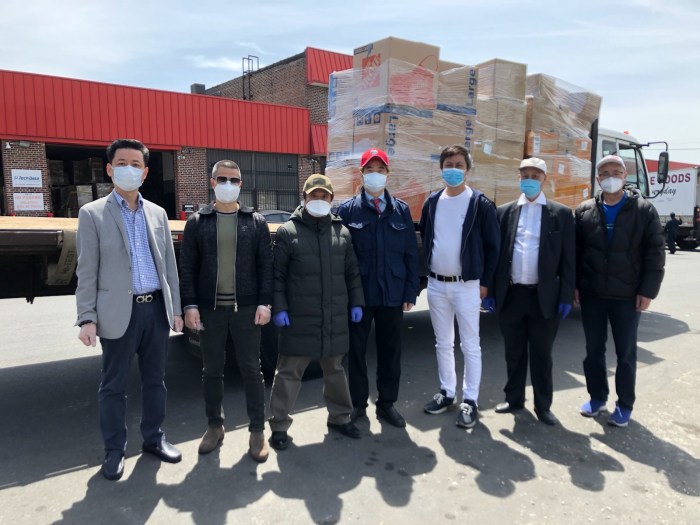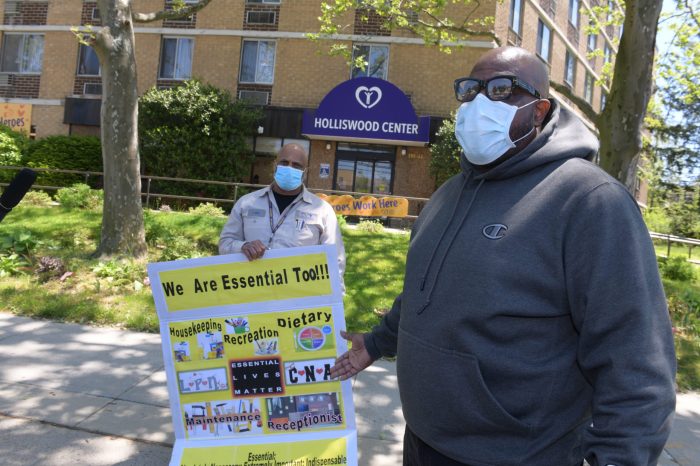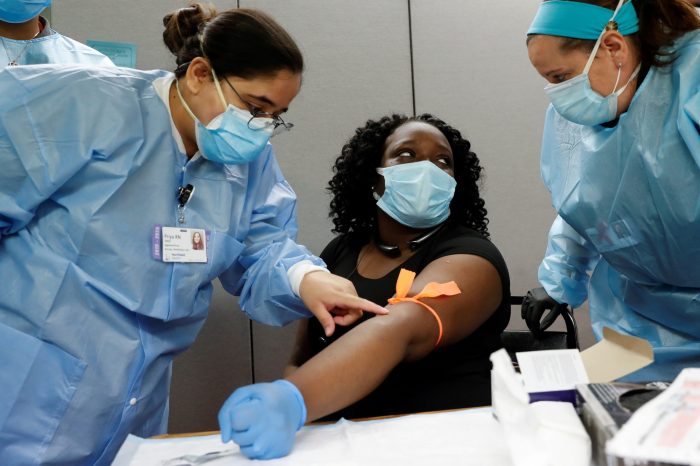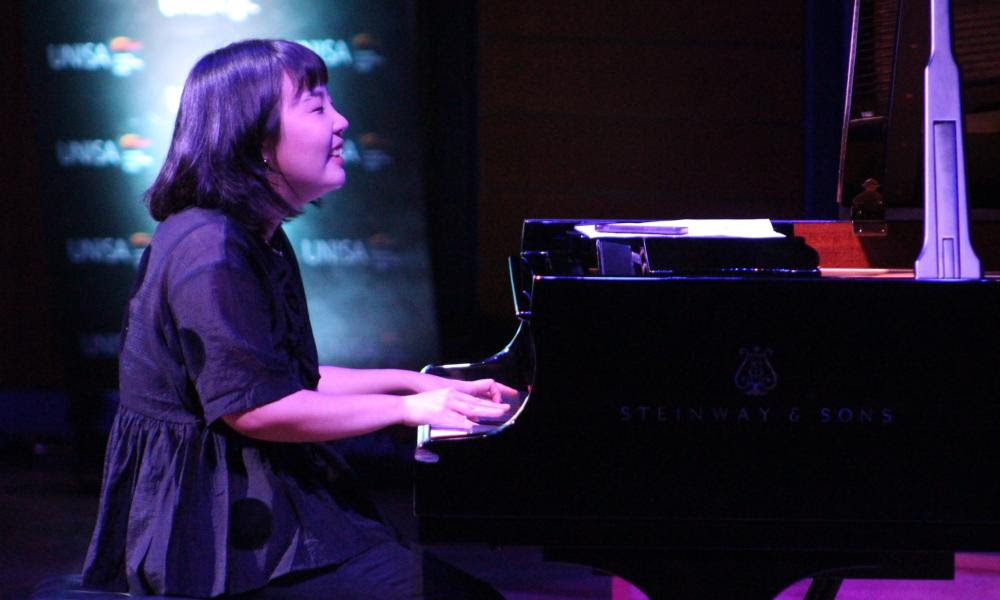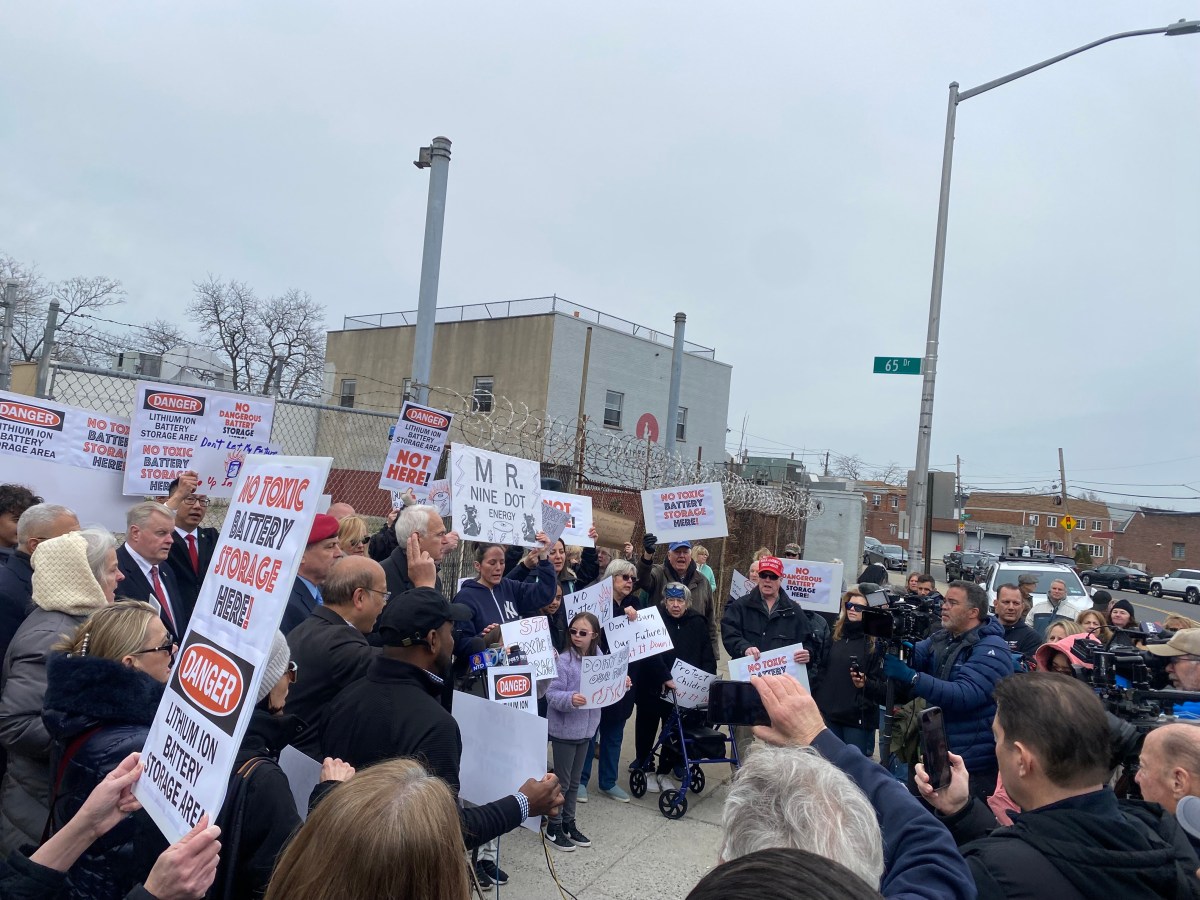Family and colleagues celebrated the life of a hero one year after her death from COVID-19.
Registered Nurse Freda Ocran was among the first New York State Nurses Association (NYSNA) members to pass away from the novel coronavirus in 2020. This Jacobi Medical Center-based nurse left behind a husband, two sons, a daughter, and a host of grieving colleagues who often called her “The Queen.” On Sunday afternoon, the NYSNA hosted a special memorial for the former Bronx resident at Jacobi Medical Center where she spent years saving lives.
Attendees braved the heavy rainfall and packed into a small lobby at 1400 Pelham Parkway to thank a woman they say had a huge impact on the hospital and mourn her ultimate sacrifice, which many believe could have been avoided if staff had significant PPE and enough staffing on hand. In hopes of preventing more deaths in the future, healthcare workers are pushing for a new “Safe Staffing” legislation that looks to ensure that hospitals and other medical centers are sufficiently staffed. Over the course of the pandemic, nurses from all across the state say they did not have enough backup during the height of the virus’ wrath to care for ill patients.
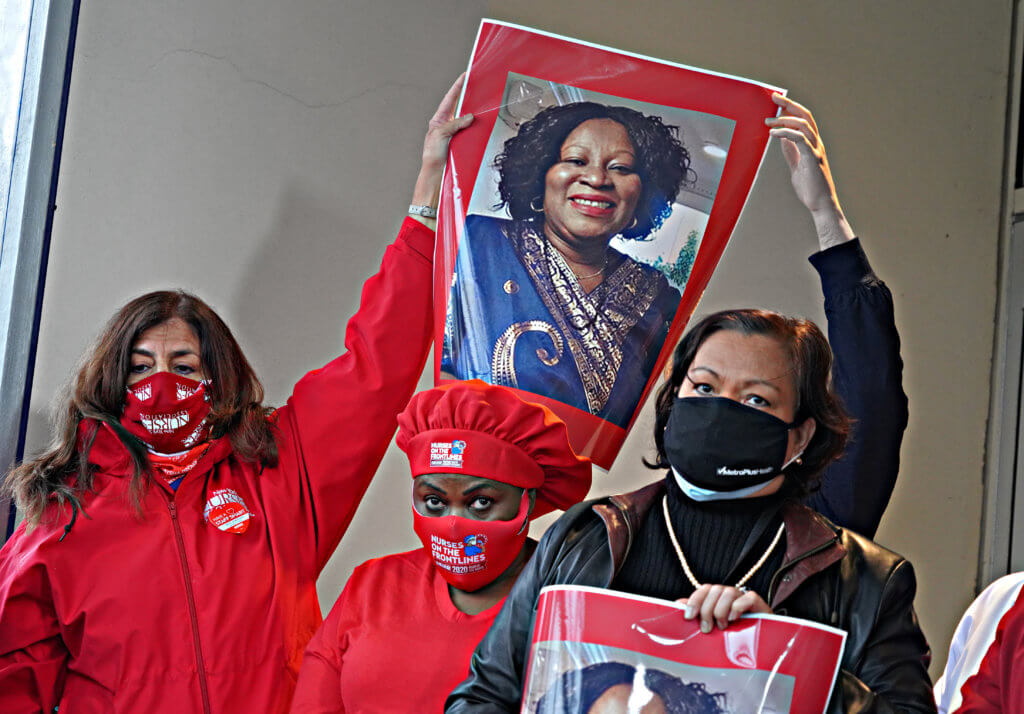
“Today we remember our heroes. We get to salute those who dedicated their lives to the service of others. Our memories of Freda live on in celebration and not in sorrow,” said Kwame K. Ocran, Freda’s eldest son.
Kwame Ocran recalled his mother’s larger than life personality, and her steadfast dedication to her career, which garnered the respect of her colleagues. She felt that her craft as a public servant was God’s work, and so she maintained an unwavering resolution to providing the best care possible to her patients, even if that meant putting herself at risk to the coronavirus.
“She was firm and resolute in her morals, and never let anyone—coworkers, supervisors, administration or an administrator stop her—not even COVID-19,” Kwame Ocran said.
Kwame Ocran evoked memories of pleading with his mother to think of herself, but she didn’t hesitate in her response. Freda told him she had to go to work. She had to help. He said it is this dedication that makes his mother—and fellow first responders—a hero.
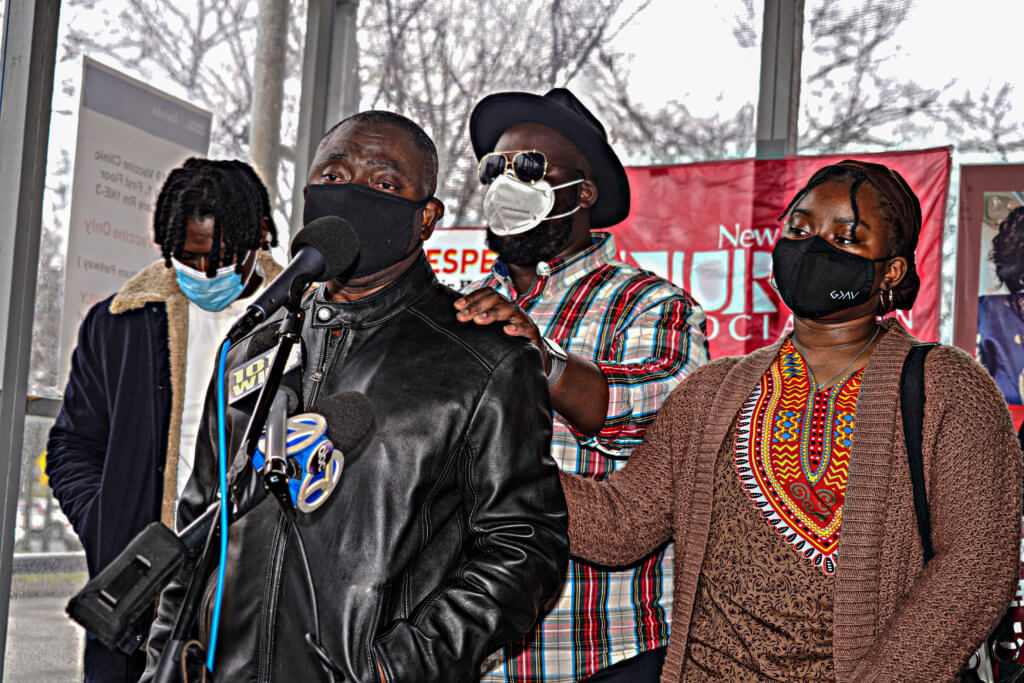
“This right here today is her legacy. Many of whom she touched can still feel her hand on their shoulder. She may not be here with us, but I’m with her every time I have a chance to serve. Her legacy is our legacy, and we need to protect it. When the pandemic started last year, the frontline workers were thrust into conditions that were hazardous to their own safety. In communities like ours, with limited resources and high populations, our hospitals need to be equipped with the proper materials to carry out their service,” Kwame Ocran said.
The family gripped one another tightly, attempting not to lose their composure and break down into tears as they shared stories of Freda Ocran, who was only 50 years old when she passed away. Both Freda and her husband, Joseph Ocran, immigrated from Ghana to the United States. They both worked within the medical field and shared a passion for helping others. As Joseph Ocran and his children took turns sharing heartfelt poems and memories about Freda, whose life was cut short, they could not hold back the tears any longer and unleashed the pain they felt. They were joined in their grief by Freda’s fellow nurses who also wept at her passing.
Now, a year after hospitals were over encumbered with patients, and the lives of medical workers like Freda are remembered, it is said by those who continue to battle the virus that these facilities are facing deep budget cuts. The Ocran family and members of NYSNA demand that hospitals be allowed to stabilize after such a debilitating year and receive the support they should have gotten since the dawn of the pandemic.
Advocates and elected officials, like Assembly Member Nathalia Fernandez and Assembly Member Amanda Septimo, both expressed how crucial it is for the hospitals to receive proper funding for PPE and other materials so that these medical workers can continue to save lives.
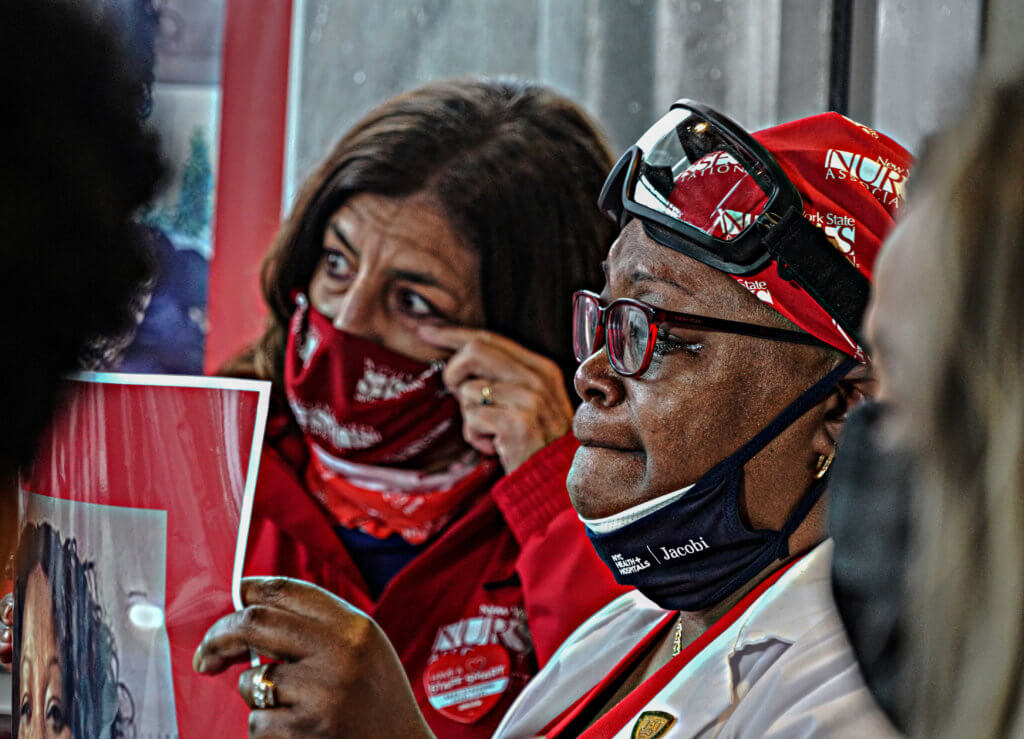
“We lost too many people senselessly to COVID, and that includes too many healthcare workers, too many nurses,” Septimo said adding, “Every day we that delay the passage of Safe Staffing, every day that we delay minimum basic standards for our workers, we are saying that it is okay to treat human life as a cost to doing business.”
Healthcare workers have for many years been put into a situation where they have too many patients to one nurse. This unbalanced ratio can and has led to errors in care and nurse burnout. In addition, budget cuts have reduced the number of materials available to workers such as face shields, N95 masks, and other items. The pandemic exposed this problem and overwhelmed hospitals.
Sean Petty, a pediatric nurse at Jacobi Medical Center, recalls meeting Freda Ocran several times at work. He wants everyone to know she was a talented nurse and not just another statistic. She could have worked at any hospital in the city, he told attendees, but Freda chose to stay in the Bronx community where she felt she was needed the most. It is her dedication that inspired him to continue working at the medical center for over 13 years.
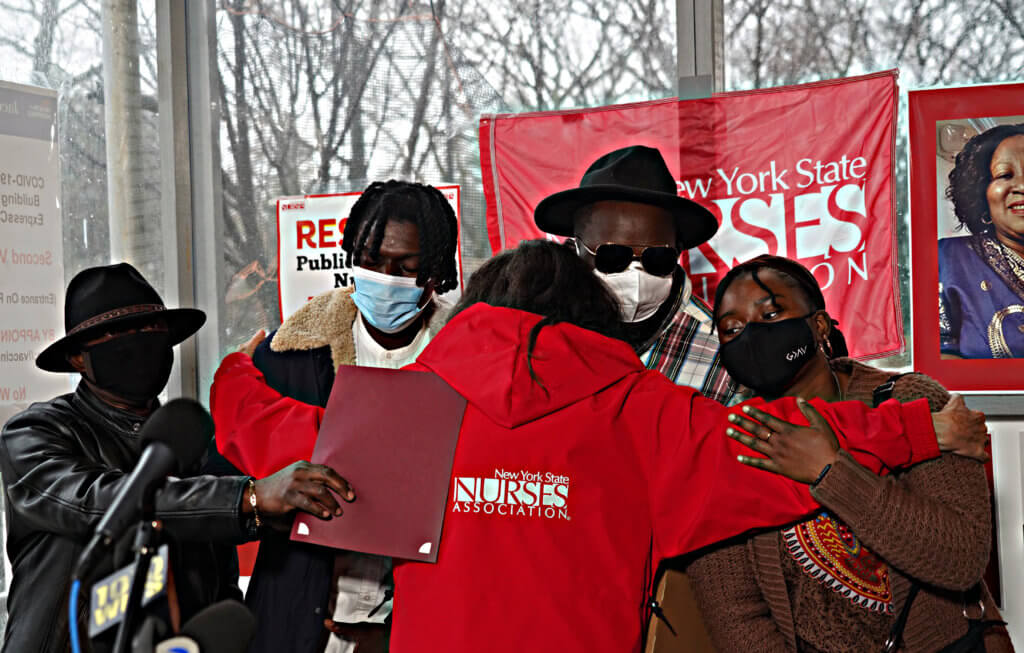
Her death was not to be marked as simply a casualty of the pandemic, but also due to a lack of support. “In the richest country, in the richest city in the history of the world, we did not have enough N95 masks to put over our face to protect us from one of the deadliest pandemics that we have seen in a hundred years,” Petty said, explaining that a lack of access to testing kits also contributed to spread of the virus, particularly in nursing homes.
After attendees honored Freda’s memory, the occasion culminated with the NYSNA presenting the Ocran family with a framed photograph depicting Freda’s face projected upon the Brooklyn Bridge.
